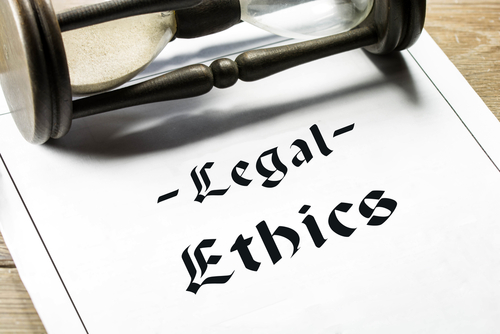A smoking-gun document offered by ex-employee of opposing party? Beware ethical risks, opinion says

Image from Shutterstock.com.
The scenario: A lawyer is offered access to a document from an opposing party’s former employee, who is not represented by counsel. The lawyer is told that the document will show that the opposing party is withholding documents in discovery.
May the lawyer read and use the document? It depends on the situation, according to the Professional Responsibility and Ethics Committee of the Los Angeles County Bar Association. Bloomberg Law has coverage.
The July 24 opinion warns that “the ethical risks and potential adverse consequences of taking possession or reviewing the material are significant” when there is reasonable cause to think that the document contains protected or privileged information.
First, the lawyer has to decide whether the former employee broke the law by possessing the materials, according to opinion. If the lawyer doesn’t have competence to make the decision, they should consult with a practitioner who has knowledge of criminal law. If the law was broken and the lawyer acquires the document, they may be ethically required to turn over the evidence to the court or to the appropriate authorities.
Second, the lawyer should address whether the data includes material subject to protection under the attorney-client privilege or the attorney work-product doctrine. Once it becomes reasonably apparent to the lawyer that the documents are privileged, the lawyer will be ethically obligated to stop reviewing the documents and give notice to the privilege holder, the owner of the work product or their counsel.
In addition, the lawyer should keep the client informed when receiving the evidence is a significant development or if it limits the actions that the lawyer is able to take.
The lawyer may have to inform the client about the impact of any battle over entitlement to the evidence, including the potential financial impact, legal costs and delay, the opinion says.
Other issues that may have to be discussed include the possibility of the lawyer being disqualified from the case and possible sanctions that could limit the client’s case.
Write a letter to the editor, share a story tip or update, or report an error.


